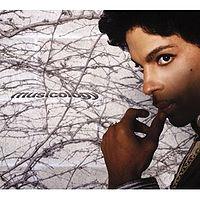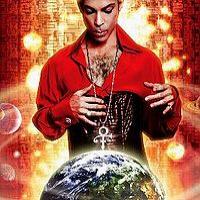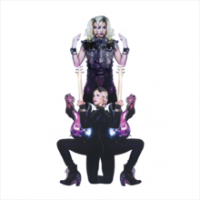
|
Kamasutra (The NPG Orchestra: 1997) A vanity production originally available only through his 800 number, and later tossed into the Crystal Ball package, this is orchestral music for a ballet written in honor of then-wife Mayte and arranged by Clare Fischer. I've got to give the man credit for refusing to use his most evident talents - he doesn't sing, play guitar or bass, or use a drum kit - he's challenging himself to entertain you blindfolded and with his hands tied behind his back. Unfortunately, he doesn't. The 12-minute title track demonstrates exactly why he should stop comparing himself to Mozart: it's in classical theme and variations style, but with a trivial eight-note refrain, and his idea of variations is having different instruments play the theme essentially unchanged. Here and elsewhere on the album ("The Plan"), he sounds more like John Tesh than His Royal Badness. The only good points are the softly funky "Barcelona," which belonged on a Madhouse album, and some arranging details on "Promise/Broken" and the finale "Eternal Embrace." Even his die-hard fans will probably find this slow going, and everyone else should stay miles away. (DBW)
The cliché "it would've made a great single disc" is irresistable here. Touted as "previously bootlegged material," this is a three-disc hodgepodge of everything from previously released soundtrack work ("Good Love," a terrific electrofunk tune from 1988; "Ripopgodazippa") to remixes ("Lovesign") to live-in-the-studio jamming ("Cloreen Baconskin" is a painful fifteen minutes) to live cuts ("Days Of Wild") and even some honest-to-goodness previously bootlegged material ("Last Heart," "Crucial"). I think it's a safe bet that just about anyone would've rather heard a choice outtake like "Moonbeam Levels" or "Old Friends 4 Sale" (neither is included here) than a remix of "The Continental," but nobody asked me. There are a few mid-80s tracks (the most widely bootlegged period) but the material is predominantly from the mid-90s. As you'd expect from a triple-CD collection by an eclectic artist recorded over fifteen years, it's far-ranging, and it's hit or miss. The high points are so high (the bewildering, thrilling title suite, the brief funk masterpiece "What's My Name") no fan should pass it up; the low points are so lame ("Poom Poom," "Da Bang," "Hide The Bone") no non-fan should pick it up. Also in 1998, he released a meandering 26-minute live improvisation, "The War," online and on cassette - it was supposed to be mailed to people who'd ordered Crystal Ball online, though I never got a copy. (DBW)
An acoustic guitar-based set recorded in 1997 and given away for free to purchasers of Crystal Ball. Some tracks are focused and compelling, including the smooth love song "The Other Side Of The Pillow," and the gritty title track. The bare sound is effective when he sticks to it, but too often he can't leave well enough alone, layering on distracting ambient background noise or superfluous keyboard parts ("Don't Play Me"). Plus there's a lot of easy listening filler - "Dionne" (like an acoustic version of "Dinner With Delores"), "Circle Of Amour," "Fascination" - Steely Dan-style soft rock is not his strong point. On the other hand, the arena rock vegan rant "Animal Kingdom" is shockingly good. Like most of his late 90s work, this has no appeal to the broader public: he's preaching to the converted, but he does come up with some good sermons. [The rating reflects the record's value if you could get it as a single disc, which you can't.] (DBW)
New Power Soul (New Power Generation: 1998) If you thought The Truth was an indication of more mold-breaking to come, you were wrong: he's right back to the horn-backed electronic funk and slow ballads he's been working with since at least 1991, only duller. Way duller. The would-be party funk is shockingly weak, with mind-numbing mechanical beats and played-out catchphrases ("Push It Up," "Mad Sex," "Funky Music"); the ballads feature amazingly clichéd lyrics ("Until U're In My Arms Again" would embarrass Diane Warren). To make matters worse, nearly every track repeats endlessly ("Come On"). As always, there are some brilliant moments - the manic fade of "When U Love Somebody," the falsetto vocals on the overblown "The One" - and the horn charts are enjoyable, but overall you'll never regret passing this one up. Unlike the previous NPG discs, here
Rave Un2 The Joy Fantastic ( A one-off deal with Arista, and a return to form, of sorts: it's brimming over with instrumental, vocal and compositional brilliance, but he has nothing much to say. As usual, the styles are all over the map, shifting from tuneless experiments with synthesized noise ("Undisputed" with a Chuck D. rap, the 80s holdover title track, "Strange But True") to gorgeous layered love songs ("The Sun, The Moon And Stars," "Man'O'War") without stopping for breath. When the approach works (the 90-second acoustic guitar-plus-percussion "Tangerine") he sounds like a genius; when it doesn't (the dull electrofunk "Hot Wit U") he comes across as a genre-assimilating showoff. He doesn't play much guitar this time out, though there's a stinging solo on the rocker "So Far, So Pleased," which features No Doubt lead singer Gwen Stefani. Continuing the cavalcade of stars, there's a double dose of Sheryl Crow: she adds faint vocals to the lame-brained party rocker "Baby Knows," and he funks up her hit "Everyday Is A Winding Road" more than it ever deserved. Other guests include Ani DiFranco, Eve, and Maceo Parker (on the Morris Day-style parody "Prettyman"). His most radio-ready effort in a while, though it didn't send him back to the top of the charts. (DBW)
The Chocolate Invasion (rec. 2000-2001, rel. 2004)
Prince's ongoing experimentation with distribution models next led him to form a new fan club, in which membership would not only get you preferred ticket access but also monthly downloads that would include new material in addition to live cuts and goofing around. I can testify that the ticket access was more than worth the annual cost, but the new material was generally considered lacking. In 2004, after the club had been shuttered, Prince collected nearly all the tracks released on these "Ahdio Shows" on two downloadable albums. The tracks are mostly the sort of techno-funk he can turn out in his sleep ("When Eye Lay My Hands On U"), with a couple of mellow seduction numbers ("Underneath The Cream") and the organ-heavy throwback "U Make My Sun Shine" - more of less a continuation of the unimaginative, unexciting New Power Soulvibe ("Supercute"; "High"). Most Prince albums have some throwaway tracks, but this is one of the very few with no keepers. (DBW)
The Slaughterhouse (rec. 2000-2001, rel. 2004)
Forgettable funk in the same vein as the previous set ("S&M Groove"; "Northside"), but at least "Hypnoparadise" has fine falsetto and unpredictable underpinnings. Recycles "2045: Radical Man," which had previously appeared on the Bamboozled soundtrack. (DBW)
The Rainbow Children (2001)
Too old-fashioned to garner big sales or airplay, but Prince recaptured his muse: covering a lot of ground without sounding like a one-man sampler disc, spinning out bizarrre, gorgeous grooves ("Digital Garden"), and for once resisting the siren song of rap. There's a fair amount of laid-back jazz (title track, with Najee on sax) and Fender Rhodes ("Everywhere"), guitar solos (the instrumental "The Sensual Everafter") and a live band sound throughout (the James Brown homage "The Work Pt. 1"); John Blackwell's real drums mostly replace programming. There are problems, though: "1+1+1 Is 3" is an inferior remake of "Erotic City"; the minute-long "Wedding Feast" is absurd light opera; "She Loves Me 4 Me" is as trite as the title implies; the opening of "Family Name" relies way too heavily on computer-generated vocals. But he saves the best for last, with two transcendant tracks: the funk opus "The Everlasting Now" and the indefinable "Last December," which develops from a gentle ballad to screaming guitar rock (more extreme at both ends than previous album-closers "Gold" and "Purple Rain"). Lyrically it's mostly a commercial for the Jehovah's Witnesses, which I guess should bother me, but it's easy to tune out the message and appreciate the music. (DBW)
One Nite Alone... (2002)
A fan club release, labelled as "solo piano and voice" though synth and backing vocals crop up occasionally; there's even a full band (including Blackwell) on "Pearls B4 The Swine" and the swinging, jazzy cover ofJoni Mitchell's "A Case Of You." His falsetto sounds better than ever ("Avalanche"), it's refreshing to hear such vigorous acoustic piano ("Young And Beautiful") and there are some solid tunes (the uptempo "Have A Heart"). The sound is spare but not demo-like, the songs are slow but not Adult Contemporary. However, several of the songs sound made up on the spot, meandering from one mini-theme to another without building up any momentum ("U're Gonna C Me," title track), and all throughout, the lyrics are clumsier and less heartfelt than usual ("Objects In The Mirror"). As fan-oriented trinkets go, it's middling: nothing comes near the level of the best material on Crystal Ball or The Truth, but it's a heck of a lot better than Kamasutra. (DBW)
One Nite Alone... Live! (2002)
A 3-CD live boxed set. I already raved about the tour these tracks were extracted from on the concerts page, so I won't say much about the performances; the set list is a combination of recent material ("Xenophobia," "Family Name") and obscure fan favorites ("Extraordinary"). I could complain that the lengthy solo piano set on disc two - twelve songs, only a couple of which are played to completion - is a bit much, but it does build anticipation for the collection's biggest treat, a disc of mindblowing funk-rock jams culled from aftershows. It's the purest document yet of Prince's joy in, and talent for, playing, without any of the high concepts or head games: though most of the tunes are his, he spends as much time playing guitar behind George Clinton, Musiq, Larry Graham and Sheila E. as he does in the spotlight, and seems just as happy. Less than a career-spanning live retrospective - which I hope we do get someday - but much more than a tour memento. (DBW)
Xpectation (2003)
An MP3-only fan club jazz album, featuring Candy Dulfer (sax), Vanessa Mae (violin), Blackwell and Smith, with Prince on Rhodes-like piano and occasional guitar ("Xogenous"). Mae plays some lovely stuff ("Xcogitate") and the rhythm section has an admirable light touch, but as with Prince's work with Madhouse and Eric Leeds, the compositions tend to be very simple and overly repetitive (title track, where a multi-tracked Dulfer keeps stating the same theme with increasing volume). Some are so slight they're barely compositions at all ("Xcogitate"), and the project tends to sound better the closer to funk it gets ("Xpand"), but I must admit, I love to hear Prince keep trying to play jazz when so many other forms of music come so much more easily to him: he's not sticking to his comfort zone, and that ought to count for something. (DBW)
C-Note (rec. 2002, rel. 2004)
Another fan club album, hastily thrown together to pacify folks who felt they hadn't gotten their $100 worth (see title). Drawn from soundchecks on Fall 2002 tour stops, and all instrumental jams named for the performance location ("Osaka") apart from one vocal number ("Empty Room," a never released 80s love song which builds from a desolate opening to an anthemic climax). The band - with Renato Neto (keys), Smith and Blackwell - is probably my favorite of his many excellent backing units, but they aren't shown to best advantage: the jams are either simple funk licks ("Copenhagen") or understated mood pieces ("Tokyo"). (DBW)
N.E.W.S. (2003)
Another instrumental fan club release, and this one really sounds like a Madhouse record, with Leeds on sax, Prince mostly on lead guitar, and the tunes verging between midtempo funk and soft mood music (the interminable second half of "South"). The disc is organized into four fourteen-minute tracks, but except for "North," each track is made up of several unconnected sections: "East" starts as a drum solo, shifts to a funk dirge with Prince repeating a three-note riff, then breaks into fast James Brown-style R&B for a few minutes before an impressionistic, gossamer denouement. Which would be great if the individual sections were up to Prince's standard, but they're just undistinguished vamps: the middle section of "West" is probably the high point, and even that's no more than a solid groove. The featured soloists - Leeds and Prince - don't play anything we haven't heard from them before, so though Renato Neto plays some exceptionally delicate keyboards ("West"), the disc is less interesting and no more entertaining than Xpectation. (DBW)
Musicology (2004)
Distributed by Columbia; Prince did actual promotion for the first time since 1999's Rave, and in common with that album there's a disconcerting desperation to impress: One genre exercise rapidly follows the next - full-band funk (the nostalgic title track), pop rock ("Cinnamon Girl" - not the Neil Young song), gentle introspection ("Reflection") - without ever settling into a comfortable rhythm. The profusion of arranging tricks ("If I Was The Man In Ur Life"; the self-consciously weird "Illusion, Coma, Pimp & Circumstance") feels more gimmicky than playful. And unlike The Rainbow Children or The Truth, there's no overriding concept to give structure and focus to the collection. Still, the individual songs are solid (the cathartic rocker "A Million Days"; the mellow butunsettling "What Do U Want Me 2 Do?"), and he sneaks in some clever social commentary, wryly commenting on the Iraq war and government surveilance during the heartbreaking ballad "Call My Name," and reeling off a typically idiosyncratic list of social ills in the brooding, Sly-like "Dear Mr. Man." The one unqualified flop is "Life O' The Party," a New Power Soul-style tepid dance jam that reuses the melody from Vanity 6's "Nasty Girl." (DBW)
3121 (2006)
Prince can put together decent sounding, expertly performed tunes in practically any genre without even thinking about it. But just because he can doesn't mean he should, and this undercomposed, trivial, painfully dull album shows why. From the one-chord, sluggish funk title track through the trite, upbeat funk "Get On The Boat" (which does have a pleasant Maceo solo), there's plenty of proficiency but no passion, originality or even a solid melody. He hits all the usual formulas - "Kiss"-style minimalist funk ("Black Sweat"); "Adore"-style R&B ballad ("Satisfy"); "7"-style acoustic pop ("The Word"); arena rocker ("Fury"); delicate ballad ("Te Amo Corazón") - but with astoundingly weak hooks and lyrics ("Lolita"). Guests include protege Tāmar (a singer in the grand tradition of Vanity and Elisa Fiorello), his touring horn section, new rhythm section Joshua Dunham and Cora Coleman Dunham, and percussionists Herbert Urena, Ricky Salas and Sheila E. I could've rated this lower, but the arrangements and production are so much better developed than New Power Soul - similarly shoddy song-wise - I couldn't see rating them the same. (DBW)
Planet Earth (2007)
Prince "sold" almost three million copies in the UK on July 15th, as it was included in that day's Daily Mail: He's still innovating on the distribution side, though he seems to be in a rut as a recording artist. An iffy grab-bag of styles, as his major releases have been over the past ten years, and it's a step up from 3121 though considerably duller than Musicology. The good: "Planet Earth" is another in Prince's long line of gradually building power ballads stretching from "Purple Rain" to "Last December"; "Lion Of Judah" is crowned with a spiffy guitar solo. The bad: "Mr. Goodnight" sports a laughable seduction rap worthy of The Onion's Smoove B; "Future Baby Mama" is a revamp of "Do Me Baby" with the bridge from "Thieves In The Temple" thrown in. The mediocre: the funk jam "Chelsea Rodgers," an advertisement for his latest protege; the disposable pop/rock "The One U Wanna C" (do u know y he spells out "one"?); the cyber-pseudo-single (downloadable by Verizon customers) "Guitar." Later in the year, he posted the free track "PFUnk" on the web - it's easily the best song attacking an artist's fanbase ever released. (DBW)
LotusFlow3r (2009)
Apparently Prince fell back in love with his main axe while out on the road backing Tāmar, and this new disc is gloriously guitar-heavy, whether the underlying tune is rock ("Dreamer"), funk ("Feel Good, Feel Better, Feel Wonderful"), or somewhere in between ("Boom"; the bleak "Colonized Mind"). Most of the compositions are equally inspired (the spellbinding power ballad "4Ever"; "Wall Of Berlin"), though there's some lite pop that doesn't really go anywhere ("The Morning After"; the instrumental "77 Beverly Park"). Half of the songs feature the original N.P.G. rhythm section of Michael B. and Sonny T. (the fusion-y bookends "From The Lotus..." and "...Back 2 The Lotus"); most of the rest feature the Dunhams. The cover of Tommy James and the Shondells' "Crimson And Clover" which he'd been streaming at LotusFlow3r.com isn't on the downloadable record - I don't have the physical CD, a Target exclusive. (DBW)
Mplsound (2009)
Prince revisits some of his 80s tropes: synth, programmed drums, and his raciest lyrics in ages ("Dance 4 Me"). Largely uptempo (though "U're Gonna C Me" (reworked from One Nite Alone) is a classic falsetto ballad), the racing "No More Candy 4 U" is the kind of 50s-style rocker he hasn't revisited since "Horny Toad" and "Jack U Off." The lyrics too hark back to the good old days ("Ol' Skool Company," a classic party record cum social comment). Apart from a Q-Tip guest appearance on "Chocolate Box," everything's produced, arranged, composed and performed by Prince - it feels good to write that again. However, from a songwriting perspective the disc is the weakest of his spring collection, overrun with underwritten vamps ("Valentina") and silly self-aggrandizing ("There'll Never B (Another Like Me)"). (DBW)
Elixer (Bria Valente: 2009)
The latest Princette - apparently Tāmar and Chelsea Rodgers are history - and by that low standard she's not bad. She's listed as co-writer on all the tunes, and they came up with a lot of smooth pop ("Everytime") and soft funk (the best being "All This Love," one of a few tracks with the Dunhams) - sort of a Toni Braxton vibe. And not unlike Braxton's work, the songs are well constructed but not particularly inspired, and together with Valente's mellow delivery you're likely to have trouble staying awake ("Immersion"). Prince duets on the ethereal title track, but otherwise stays in the background, and it's an understatement to say that a bit more of his unpredictability would have been welcome. (DBW)
20Ten (2010)
Like 3121 but even more so, a collection of tunes that are unmistakably Prince and just as unmistakably third-rate. He covers all his genre bases, from drippy ballad ("Walk In Sand") to politicized funk ("Act Of God"), but none of the songs could crack the lineup of Musicology or Lotusflow3r, let alone one of his landmark albums. (Well, "Sticky Like Glue" is clearly better than "Life O' The Party," but you know what I mean.) As on Mplsound the production mostly references the 80s - "Horny Toad"-y minimalist rock ("Everybody Loves Me"); deliberate funk/rock ("Laydown," the album's best line is his self-description as "the Purple Yoda"); lots of programmed Linn drums ("Compassion") - and while that has some nostalgia value, it's a sobering reminder that back in those days every album - every cut, even the lousy ones - brimmed over with the creative vitality and spark that's missing here. This album's distribution quirk: Bundled with an assortment of European newspapers. (DBW)
Superconductor (Andy Allo: 2012)
Prince's latest protege release is an opportunity to study his production prowess separately from his other talents: he co-wrote three songs and plays lots of backing tracks, but most of the material is Allo's, and he refrains from outshining her faint abilities on vocals or guitar. As her compositions are - to put it politely - lackluster, he lavishes care on the arrangements: The title track gets psychedelic pop trappings circa 1985, updated with modern club keyboards; the single "People Pleaser" is loaded with funky horns; if I'm not mistaken, "If I Was A King" is his first venture into reggae since 1992's "Blue Light." At times the borrowings are overt ("Nothing More" is an inferior reworking of "Pink Cashmere") but usually they're more subtle ("Long Gone," which shares a mood but nothing else with "Sometimes It Snows In April"). He pulls out all the stops on "The Calm" - "Diamonds And Pearls" tinkling bells, chiming guitars, flute fills - as if it were a masterpiece rather than just another trite love song. So it's a rewarding listen in a weird way for purple people, but everyone else should keep a safe distance. Also in 2012, Prince released a single, "Rock And Roll Love Affair." (DBW)
PlectrumElectrum (3rd Eye Girl: 2014)
Originally presented as a back-to-basics, four-on-the-floor rawk project - Donna Grantis, guitar; Ida Nielsen bass; Hannah Ford Welton; drums - and when the band sticks to that idiom they're solid (Grantis's "Ocean"-ic title track; "Wow") though predictable ("Pretzelbodylogic"). Ford and Neilsen in particular sound more stifled by the format than inspired by it ("Marz"). But sticking to a program has never been Prince's M.O., so the group ventures into midtempo love songs ("Whitecaps," showcasing Ford's unimpressive pipes), a cover of Alice Smith's "Another Love" and - best of all - the '90s throwback pop/rap "Boytrouble" featuringLizzo, Sophie Eris and Claire de Lune of Minneapolis outfit The Chalice. A couple of earlier singles released as 3rd Eye Girl or Prince & 3rdEyeGirl ("Live Out Loud"; Screwdriver") didn't make the album. (DBW)
Art Official Age (2014)
Released concurrently with Plectrum, and it'd be tempting to say one is boldly inventive while the other is rear-view-mirror retreads, but in truth each has its share of gems and duds. This release does sound a lot better: it was co-produced by Ford's husband Josh Welton, and if he's responsible for the sonic freshness that's probably the greatest serendipity Prince has gotten from adding a bandmember since Lisa led to Wendy. The lyrics address the same themes that have been preoccupying him for twenty years - creativity and commoditization ("Clouds"); technology and its discontents ("Art Official Cage") - and, yeah, they're set in a field of funk, rock and EDM tropes, but that description doesn't begin to capture the loveliness of the left turns, the wealth of keyboard sounds that never seem like gimmicks, the quasi-mystical intensity of even the bare-bones love song "The Breakdown." That said, the second half sags with lots of pleasant-ish love songs ("This Could Be Us") and vague philosophizing ("Time"), so it's not the wall-to-wall pulse-pounder I'm still holding out hope for. (DBW)
HITNRUN Phase One (2015)
Produced, arranged, composed and performed with Josh Welton (Ford Welton's husband), and I think it's not coincidental that the sound is suddenly up-to-date, with plenty of EDM-y keyboards and programmed drums ("Ain't About To Stop," originally intended for a Rita Ora album). There's a lot of fluff here - the trite intro "Million $ Show" (featuring Judith Hill); a couple of remixes ("This Could B Us"; "Mr. Nelson") - but several of the tracks really connect: "Shut This Down" and "Like A Mack" make good use of Welton's 21st Century sonics combined with some greasy funk bass; the obscure social comment"X's Face" is the sort of oddity I didn't think Prince was still able to come up with. There are a couple of touching romantic numbers ("1000 X's & O's"; "June"), and I have a soft spot for the 2014 retro-disco single "Fallinlove2nite." Full review coming soon. The non-album single "Stare" appeared shortly before this release. (DBW)
For You (1978), 4/10 Prince (1979), 4/10 Dirty Mind (1980), 6.5/10 Controversy (1981), 5/10 1999 (WB, 1982), 7/10 Purple Rain (1984), 7/10 Around The World (1985), 7/10 Parade (1986), 6.5/10 Sign Of The Times (1987), 7/10 Lovesexy (1988), 5/10 Batman (1989), 4/10 Graffiti Bridge (1990), 4/10 Diamonds And Pearls (1991), 5/10 Love Symbol (1992), 6.5/10 Black Album (1994), 6.5/10 Come (1994), 5.5/10 The Gold Experience (1995), 5.5/10 Chaos & Disorder (1996), 4/10 Emancipation (1996), 5/10 Crystal Ball (1998), 3/10 New Power Soul (1998), 3/10 Rave Un2 the Joy Fantastic (1999), 3/10 The Rainbow Children (2001), 5/10 N.E.W.S. (2003), 5/10 Musicology (2004), 3/10 3121 (2006), 5/10 Planet Earth (2007), 5/10 Minneapolis' multi-instrumentalist Prince was Jackson's intellectual counterpart. This licentious androgyne, specializing in quasi-porno ballads, not only wrote his songs but even played all or most of the instruments. His favorite format was the concept album, not the hit single. His fusion of pop, soul and rock was driven by sheer libido. Prince basically transformed the moaning and screaming of copulation into a style of singing, a neurotic, delirious falsetto that continuously referenced sexual pleasure. If the fundamental elements remained the same throughout the decade, the emphasis shifted from the purely self-celebratory 1999 (1982) to the epic Purple Rain (1984) to the self-indulgently baroque Around The World (1985) to the semiotic, post-modern clockwork of Sign Of The Times(1987). Each album was both an erotic and a stylistic tour de force. His career as a whole was both a lascivious act and a pop encyclopedia. Prince's songwriting skills, also displayed in the Bangles' Manic Monday (1986) and Sinead O'Connor's Nothing Compares (1990), belonged to a white tradition that harks back to the Brill Building and runs through Brian Wilson and Todd Rundgren.
Sign Of The Times (1987) also contains the music composed for an unreleased album of 1986 that was to be credited to his feminine alter-ego, Camille.
Prince's last trilogy of albums for his major label was uneven: Love Symbol (1992) had a few decent songs, Come (1994) had one (the lengthy eponymous funk-soul-jazz jam that opens it), The Gold Experience (1995) had two or three (The Most Beautiful Girl In The World, Pussy Control, Now),Chaos & Disorder (1996) had none.
His first independent production, the triple album Emancipation (1996), sounded like a self-indulgent collection of unreleased material (the best songs were covers). If nothing else, Crystal Ball (1998) was labeled as such. New Power Soul (1998) was a much humbler effort, but only confirmed the artistic decline, as did the star-studded Rave Un2 the Joy Fantastic (1999). The religious outpour of The Rainbow Children (2001) was truly embarrassing. The only decent recording of this period wasN.E.W.S. (2003), the least Prince-y of all his albums: four lengthy improvised instrumental jams with a saxophonist, a drummer and a bassist. Having noticed that this corresponded with his embrace of the independent industry, Prince returned to a major label for Musicology (2004), which got better reviews but was as awful as the previous ones.
3121 (Universal, 2006) is the quintessential Prince album, proving that middle-aged men can still behave like teenagers and be credible. Love andBlack Sweat sound like Prince revisiting his old hits to make them even slicker, catchier and funkier, while Fury and Get on the Boat sound like Prince paying tribute to Little Richard and James Brown.
Prince mostly proved how good he was at marketing himself with albums such as Planet Earth (2007) that contained little of substance but were sold in a very visible way. The music not only sounded dated but failed to ignite, and would have failed even in the 1970s. What could be salvaged were the slow ballads, such as Future Baby Mama and Somewhere Here on Earth.
LotusFlow3r, MPLSound (NPG, 2009) and Bria Valente's Elixer (2009) were bundled together as yet another triple-disc album. They contained a lot of trite material that Prince would have been ashamed to release on his early albums, and several pleasant (but certainly not groundbreaking) guitar excursions.
Prince died in 2016 at the age of 57. |
 2016 m. balandžio 22 d. 2016 m. balandžio 22 d. |
 2025 m. gruodžio 29 d. 2025 m. gruodžio 29 d.  2025 m. gruodžio 28 d. 2025 m. gruodžio 28 d.  2025 m. gruodžio 26 d. 2025 m. gruodžio 26 d. |
Komentarai (0)

| Pasiūlė | Daina | Mėgsta | |||
| Konditerijus |  Under the Oak Under the OakCandlemass |
||||
| DjVaids |  Garden GardenLita Ford |
||||
| Alvydas1 |  Counting Stars Counting StarsBig Big Train |
||||
| PLIKASS |  Do I Have To Say The Words? Do I Have To Say The Words?Bryan Adams |
||||
| Sahja |  French Kiss French KissAkcent |
Artimiausi įvykiai
Kas vyksta?
PLIKASS pakomentavo KAnDIs
PLIKASS mėgsta Algirdas Kaušpėdas
PLIKASS mėgsta KAnDIs dainą Už poliarinio rato
PLIKASS mėgsta KAnDIs dainą Moteris
PLIKASS mėgsta Andrius Mamontovas dainą Dievinu Tave
PLIKASS mėgsta G&G Sindikatas dainą Repo Pajėgos
PLIKASS mėgsta Adomas Vyšniauskas dainą Kely Sustoja Laikas
PLIKASS mėgsta EveBei dainą Penkialapis
PLIKASS mėgsta Paulina Paukštaitytė dainą Pažįstamas jausmas


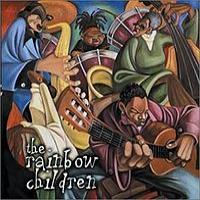
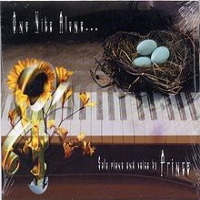



 : 1998)
: 1998)




